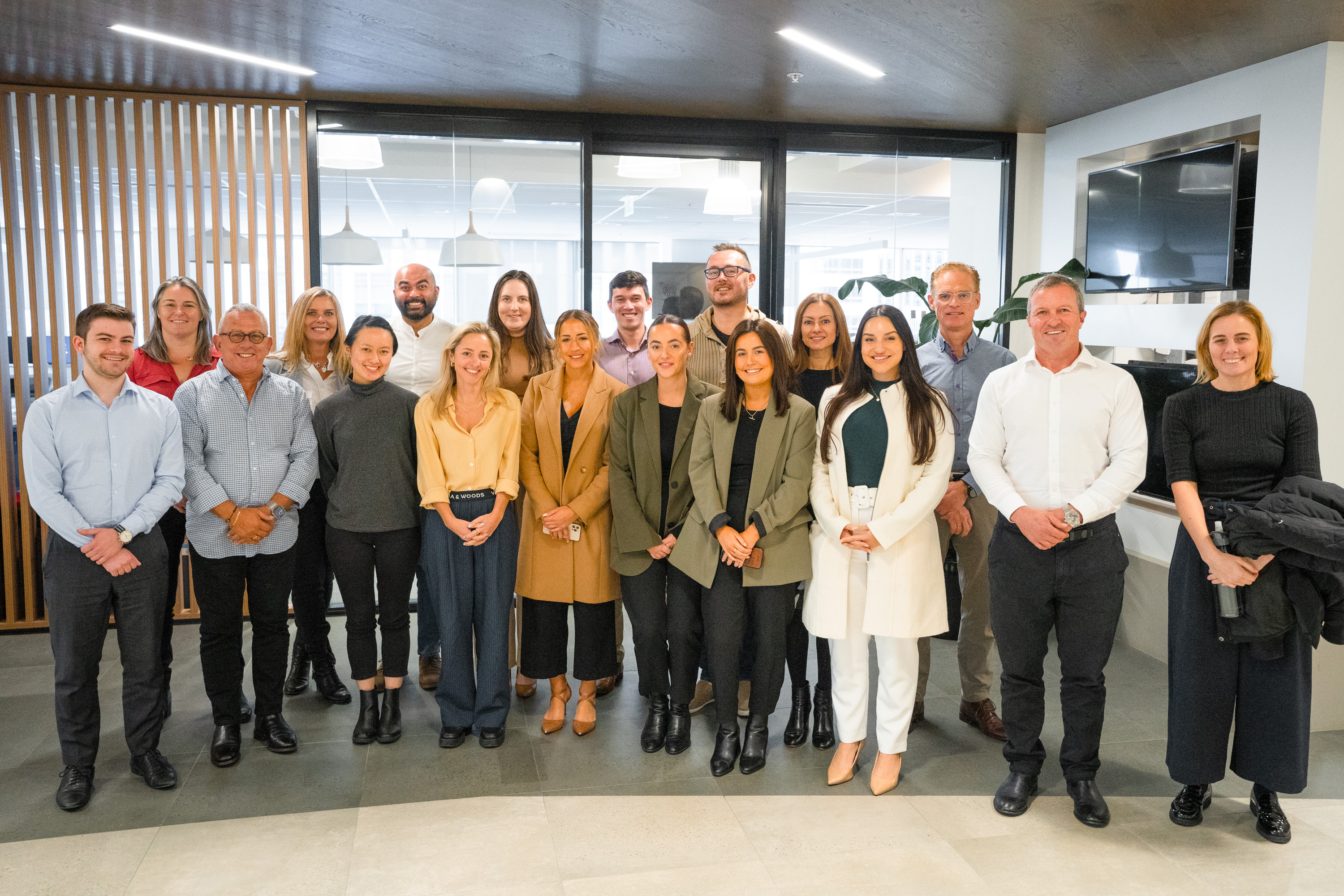

“I think burnout is a big issue at the moment,” said Vedic meditation teacher, Georgia Vavasour (pictured above). “The day that I walked in, Liz [Elizabeth Williams, HDI Global SE’s head of people and culture] said this was so timely because they’d just been talking about burnout in a senior management meeting.”
In May, HDI, the global insurer, likely became the first insurance firm to invest significantly in Vedic meditation as a way of addressing employee stress and burnout.
Appropriately, Williams and CEO Stefan Feldmann – HDI leaders in the Sydney office – chose Vavasour as their teacher. Seven years ago, Vavasour was their colleague and market manager before a battle with cancer forced her to stop working in the insurance industry.
“This is the first time I’ve taught in insurance again and it’s been a pretty special experience for me to come back,” she said.
Vavasour described it as a “very satisfying” and “full circle moment.”
Part of completing the circle involved learning this meditation technique. She said Vedic meditation had transformed her mental clarity, energy levels and helped her cancer recovery. As a result, she was inspired to become a Vedic teacher and travelled to India’s Himalaya mountains for instruction.
“I spent three months in intensive training there and, since early 2017, I’ve been back teaching full time in Australia and New Zealand,” said Vavasour.
Before returning to HDI, she estimates already training about 1,000 people in the technique.
During the COVID-19 pandemic, with its lockdowns and also during the months immediately afterwards, many insurance firms focused on mental health initiatives. Arguably, in 2023, many of those initiatives have now taken a back seat.
However, Vavasour said stress leave and absenteeism are currently rife and not just in the insurance industry. Companies, she said, end up paying the price for losing staff.
“People are feeling that in the body and they’re not able to just keep going the way they once were - and who is going foot the bill for that? It’s ultimately going to be corporations,” she said.
Vavasour said the issue is reaching a point where firms see the sense in investing in employee wellbeing. However, she said, these companies want to do it in a way that will “shift the dial.”
After meeting with Vavasour, Feldmann and Williams agreed that Vedic meditation could be the dial shifter. Both joined the course Vavasour taught to about 20 HDI staff.
“Learning Vedic meditation is a four-day course, always in person, so we don’t teach online,” said Vavasour. “We want that experience to be as profound and expert as possible, which we find best in person.”
Part of the course involves each person learning a mantra.
“A mantra is an impulse of sound which means mind-vehicle, literally, in Sanskrit.” said Vavasour. “It has the capacity, through its particular vibratory quality, to draw the mind inward.”
She said once the course is over, the recommended practice is 20 minutes, twice per day. Vavasour said this time investment leaves participants feeling refreshed and inspired and can improve productivity at work.
“The net result of this meditation tends to be productivity goes up, quality of work goes up and the quality of the experience of the employee of all of those things increases as well,” she said.
A survey of the HDI participants (pictured below) before and after the meditation course apparently proves Vavasour’s views.

“We asked them what their levels of sleep, fatigue, anxiety and energy were and some of the results are quite interesting,” she said.
Two weeks of meditation, said Vavasour, resulted in course participants, on average, experiencing a more than 50% drop in fatigue levels and just under a 50% drop in anxiety levels.
Williams agreed and said one staff member described the Vedic meditation experience as life changing.
“Apart from the attendees feeling better within themselves - so more rested and able to cope with situations that would normally have created a negative response - the experience has opened up conversations about mental health and how we can make that a priority in our daily lives,” she said.
Williams said her Sydney staff now have a regular daily time when they meditate together.
“As an employer, you want to give your employees the opportunity to be the best that they can be and provide them with the tools to do so,” she said. “Georgia has given us a platform to invest in our staff and this is something that they can take with them and use for the rest of their lives.”
Williams said the aim now is to provide all of their employees in Australia with the opportunity to learn Vedic meditation. She expects another Sydney course to roll out, together with classes for the HDI offices in Brisbane and Melbourne.
What do you think of taking a class of Vedic meditation to reduce stress levels and increase productivity at work? Please tell us below
